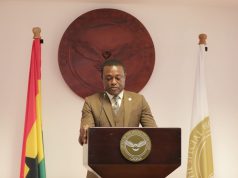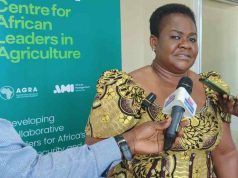As Ghana gears up for the 2024 general elections, Dubawa West Africa, an investigative and fact-checking private organization, in partnership with the Embassy of the Federal Republic of Germany, has organized a two-day fact-checking training program for journalists, bloggers, and influencers.
The training, held in Accra, aimed to equip participants with fact-checking skills to identify and counter misinformation and disinformation, which increasingly threaten electoral processes worldwide.
Fact-Checking: A Critical Tool for Democracy
Nathan Gadugah, Editor of Dubawa Ghana, emphasized the importance of combating false information during the event:
“As we approach Election 2024, bad actors are poised to exploit information spaces to mislead the public. The quality of information citizens receive directly impacts the decisions they make. Our objective is to equip journalists and influencers with the skills to detect and counter misinformation, ensuring a well-informed electorate.”
Gadugah also urged journalists to remain vigilant and avoid being used as tools to amplify false information, whether knowingly or unknowingly. He stressed that fact-checking is essential for media professionals, particularly during elections.
The Role of Digital Media in Elections
Dr. Aurelia Ayisi, a Lecturer at the University of Ghana’s Department of Communication Studies, discussed the evolving media landscape and its implications:
“Digital technologies have re-democratized the media space, granting influencers and bloggers substantial audiences. This means everyone in the media ecosystem has a role to play in ensuring the accuracy of information shared, especially during elections. The focus should be on getting the story right rather than rushing to publish first.”
Dr. Ayisi also highlighted the need for collaboration among traditional journalists, bloggers, and influencers to preserve the integrity of electoral reporting and maintain public trust in democratic processes.
Building Resilience Against Information Disorders
Maxine Danso, International Expansion Manager at the Centre for Journalism, Innovation, and Development (CJID), emphasized the importance of critically engaging with information to address misinformation effectively:
“We’re dealing with various manifestations of misinformation, and it’s crucial that journalists critically engage with information before sharing it. Verification is not just a task but a responsibility, particularly in the lead-up to elections where trust in democratic processes is at stake.”
Danso advocated for a culture of critical thinking and careful content verification, encouraging media practitioners to pause and verify information before sharing it.
Affail Monney Urges Journalists to Promote Peace and Truth
Former President of the Ghana Journalists Association (GJA), Affail Monney, urged journalists to uphold truth, ethics, and professionalism as Ghana prepares for the 2024 elections.
He emphasized the media’s pivotal role in promoting peace, combating misinformation, and ensuring a credible electoral process.
He added that the stakes in the 2024 elections are high, urging media professionals to exercise caution to avoid narratives that could incite unrest.
A Call for Ethical Journalism
The workshop concluded with a strong call to action for journalists, bloggers, and influencers to prioritize accuracy over speed, ensuring they do not inadvertently contribute to spreading falsehoods.
As Ghana prepares for the 2024 elections, the training underscored the media’s critical role in preserving electoral integrity and fostering an informed electorate.
Participants were reminded of their ethical duty to safeguard democracy by ensuring that only verified and accurate information reaches the public.
Source: Isaac Kofi Dzokpo/newsghana.com.gh


















